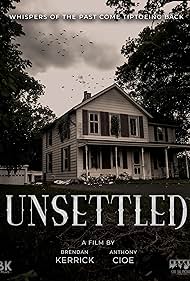Eye-opening Cuban culture
Students study abroad on spring break
A group of 12 students and three faculty members from PNW spent spring break in Cuba visiting museums, sightseeing and meeting Cubans.
The students were enrolled in a history class called “special topics in Cuba,” taught by Kenneth Kincaid, associate professor of history, where they spent the semester studying the country before going from March 13 to 19. Of the students, eight were from the Hammond campus and four were from the Westville campus. The fee for the trip was included in the cost of enrolling in the class. Peggy Rose and Diane Spoljoric of the college of Nursing also attended and paid their own way.
Kincaid said the most beneficial part of the trip was the interaction with the people in Cuba because it helped erase the stereotypes associated with the country from U.S. perspectives.
“On one hand, it was obvious the Cubans did not feel they had to censor themselves. They freely told us about errors the revolution had committed but also about its successes,” Kincaid said. “The students also got to understand that Cubans did distinguish between Americans and American foreign policy, including the embargo, but that it did not affect the warmth and hospitality they showed our students.”
Fred McGee, senior hospitality and tourism management major, said the group visited Havana, the capital city, and Playa Geron, one of the beach landing sites where the Bay of Pigs invasion occurred. McGee said the trip was a learning experience for him because he knew very little about the Bay of Pigs and how it affected relations between the U.S. and Cuba.
“The people were really friendly and wanted to talk to Americans,” McGee said. “They’re really curious, to be honest. At one point, we went to one of the houses there and my friend said to me, ‘Just think of the things we did to them and they can still invite us in their homes and have fun with us.’ That really floored my emotions and hit me.”
The group also visited La Cabana, Fort of Saint Charles built in the 1800s, attended the nightly ceremonial cannon fire at the fort and toured the museum that displayed pieces of the planes, uniforms and photographs from the Bay of Pigs.
“Just looking at the pictures showed a story,” McGee said. “There were people who were killed, but it also showed how the families came together. It showed their reaction to the face of adversity.”
The group also listened to educational lectures. One of the lectures was given by journalist Marc Frank, who wrote “Cuban Revelations.” He talked about how the relationship between Cuba and America is changing.
“He described it as the genie has been let out of the bottle,” McGee said. “We’re not going to revert things back to the way they were and our relations are going to progress.”
The students also attended a presentation in the house of Gisela Arandia, scholar of Afro-Cuban studies. During the trip, Arandia agreed to come to PNW to give a presentation on April 20 on a political analysis of race and racism from a Cuban perspective.
The students from the trip will be giving a presentation about their experiences on April 17 at the Hammond campus and April 18 at the Westville campus.



